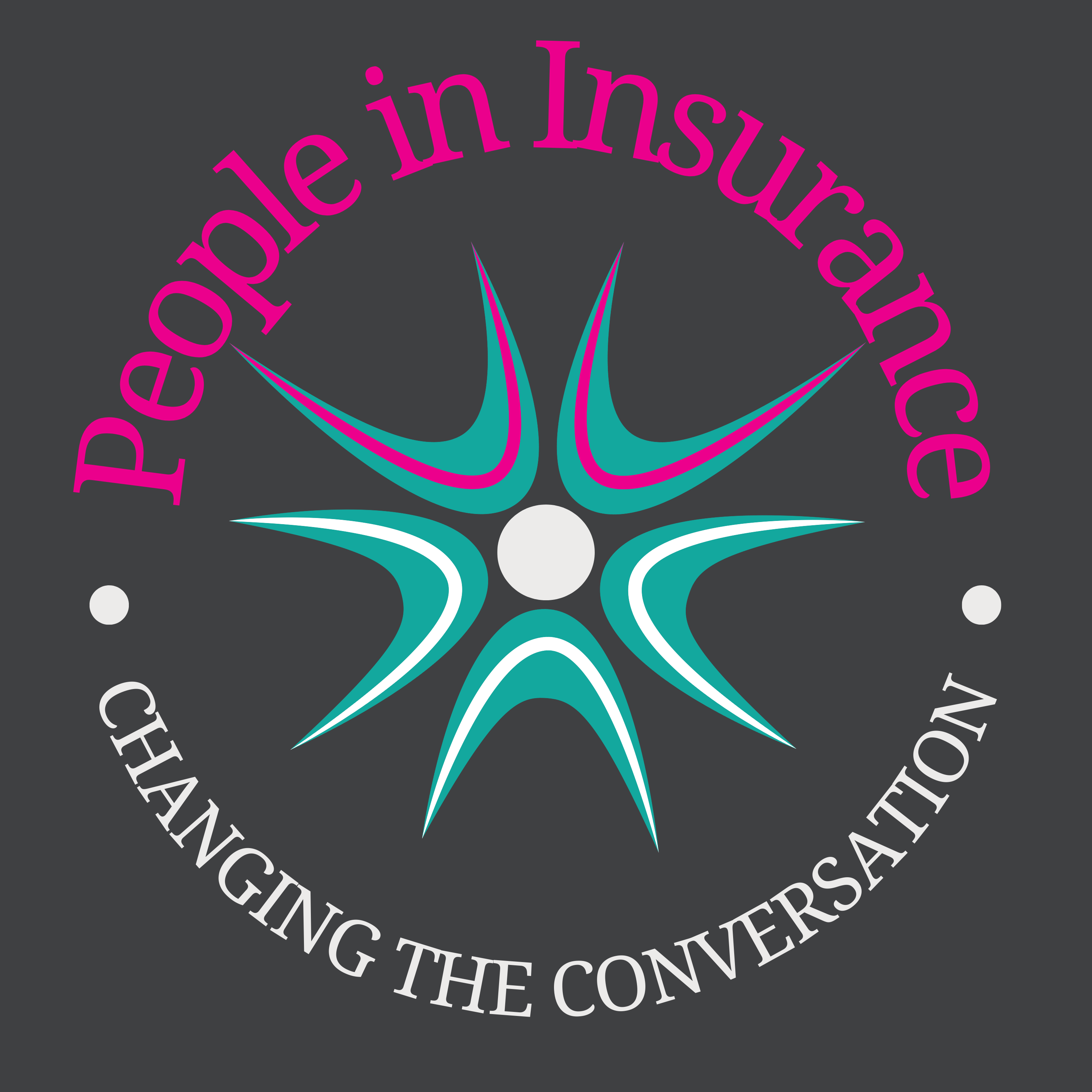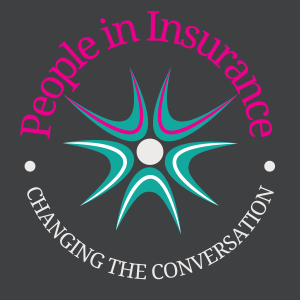
31.2K
Downloads
128
Episodes
Welcome to People in Insurance: Changing the Conversation Join us as we delve into the dynamic intersection of diversity, culture, and technological innovations within the insurance industry. Listen in as Host, Sarah Myerscough, Chief Ideas Officer at Macaii, sits down to talk with trailblazers, thought leaders, and innovators who are reshaping the very fabric of insurance. Here, we bring you stories that not only redefine the narrative but also offer a fresh perspective on the evolving landscape of insurance. From ground-breaking initiatives to transformative insights, we’re your trusted guide through the winds of change. Tune in to People in Insurance, brought to you by Macaii, and stay ahead of the curve in the ever-evolving world of insurance.
Episodes

Wednesday Dec 22, 2021
Wednesday Dec 22, 2021
Do you ever feel unconfident in your ability to present risks to insurers? Have you made several risk presentations, but not heard back from the insurer? Are you keen to learn how to boost your presentation skills?
In this episode, we’re very excited to have three guests: the Regional Directors of Ecclesiastical Insurance, Francis Carroll, Adrian Tate, and Robert Lloyd. They discuss the profound significance of accurately presenting risks to insurers, both in order to secure the appropriate cover for your clients, and indeed to engage the insurer’s interest in mitigating that risk. In conversation with Boston Tullis’ Sarah Myerscough, they discuss how you can adapt your presentation practices to secure the best cover for your clients.
Quote of the Episode
“The more certain and confident you make an underwriter, the more they're prepared to push that rate, push those covers, and give a little bit [more] breadth of cover, because they're comfortable with the risk.”
Insurance as an industry thrives upon information above all else. If an underwriter lacks sufficient information in order to make a balanced determination about a risk, they will not feel comfortable in offering substantial cover to one of your clients. Thus, prior to presenting a risk to an insurer, ensure that you have a firm grasp not only on a sufficiently detailed amount of information pertaining to the risk at hand, but also that you understand why that detail will be important to the underwriter. As Ade explains, if the underwriter can intimately understand the client’s current business practices, and how they’re mitigating losses, the underwriter will feel more confidence in offering cover that is satisfactory to all parties.
Key Takeaways
Given the current inundation of the market, insurers are swamped with potential risks to consider and review. In order to stand out from the crowd, you should endeavour to create a sense of emotional engagement with the insurer in your presentation, emphasising why yours is a worthwhile risk for them to follow up on. Ade notes that many brokers use software houses which tend to produce uniform presentations, and don’t necessarily provide the level of detail required for underwriting risks. As such, the presentations generated by these digital portals do not always enable underwriters to react and perform efficiently in relation to the risk at hand.
To save both yourself and the insurer time, ensure that they would be appropriate for covering the risk you and your client are dealing with. Many insurers, like Ecclesiastical, have particular specialisms, and simply will not respond to risks which do not adhere to those parameters. If you are unsure about whether your risk aligns with their specialism, Robert emphasises that you can and should directly contact the insurer, who will be more than happy to advise you.
Additionally, give the insurer some time to consider the risk you are presenting. Given the sheer volume of inquiries many insurers are currently receiving, if underwriters are not given an adequate slot of time with which to deal with the risk a broker is presented, it will inevitably be side-lined in favour of another risk that has given a more reasonable leading time. Furthermore, many insurers, including Ecclesiastical, do not merely underwrite risks, and also provide a range of other services. If they haven’t given a chance to ascertain what exactly the client needs, conversion is less likely.
In order to prevent such issues from arising, thereby saving both yourself and the insurer time, create a regular dialogue with your clients. Introduce touchpoints when a broker meets with the client and finds out information that can be communicated to the insurer, so they can determine whether their cover needs to be adjusted or updated prior to the renewal cycle. In doing so, your client will always have the most up-to-date cover, and a stronger relationship between brokers and insurers will be established.
Communication is key. If you ever have any uncertainties about the risk you are presenting, be it whether the insurer you are presenting to would be suitable for mitigating it, or if you are unsure about the amount of detailed information you should include in your presentation, get in contact with them as soon as possible.
Best Moments/Key Quotes
“A lot of the risks are not being embraced by the insurance market like they were a couple of years ago. Therefore, there's a big job on the hands of brokers: trying to present the risk to insurers, but equally get a fair and reasonable response from insurers. Because it's very easy for insurers at the moment to say no to a lot of risks. So, this presentation idea is more important than ever.”
“It's not just about sending a presentation through and sitting there and waiting to see what happens. Actually, the best thing is to do is to get on the phone to the underwriter, get on the phone to the key relationship manager, and actually explain to them why this is a good risk for ecclesiastical to help make sure yours gets to the top of the pile.”
“The engagement with the underwriter, whatever that may be, is the most important thing… the broker needs to appeal to the underwriter he’s talking to.”
“The more information underwriter has, the more discounts, the more favourably they can look at the risk, which is ultimately what we all want… We want to write it, we want to write it competitively, and we want a good customer outcome. And if we can get more information, that makes our life easier.”
Resources
https://www.ecclesiastical.com/
About the Guests
Francis Carroll has over thirty years of experience in the insurance industry. He is currently Ecclesiastical Insurance’s Regional Director for the North of England, Scotland and Northern Ireland, whom he has worked with for seven years.
https://uk.linkedin.com/in/francis-carroll-acii-a6a04528
Adrian Tate is Ecclesiastical’s Regional Director for Central and Southwest England. He has 31 years of experience in the industry, specialising in commercial insurance.
https://uk.linkedin.com/in/adrian-tate-06aba524
Robert Lloyd is the Regional Director of Ecclesiastical for London and Southeast England. Having previously worked as the General Manager for Aspen Insurance, he has a wealth of experience across a range of specialisms.
https://uk.linkedin.com/in/robert-lloyd-340290197
About the Host
Sarah Myerscough is the Sales and Marketing Director of Boston Tullis Group. The founder of The Insurance Brokers Podcast, she brings a wealth of marketing experience and a fresh perspective on marketing in the insurance sector. Boston Tullis works with insurance brokers to offer solutions to business development ceilings, particularly in the rapidly developing fields of video marketing and thought leadership.
If you would like Sarah to help you develop an integrated marketing strategy, using state of the art concepts, then please book a free 20 min call via Calendly.
Website: https://bostontullis.co.uk/
Evaluation Link: https://s.bostontullis.co.uk/s/podcastevaluation

No comments yet. Be the first to say something!